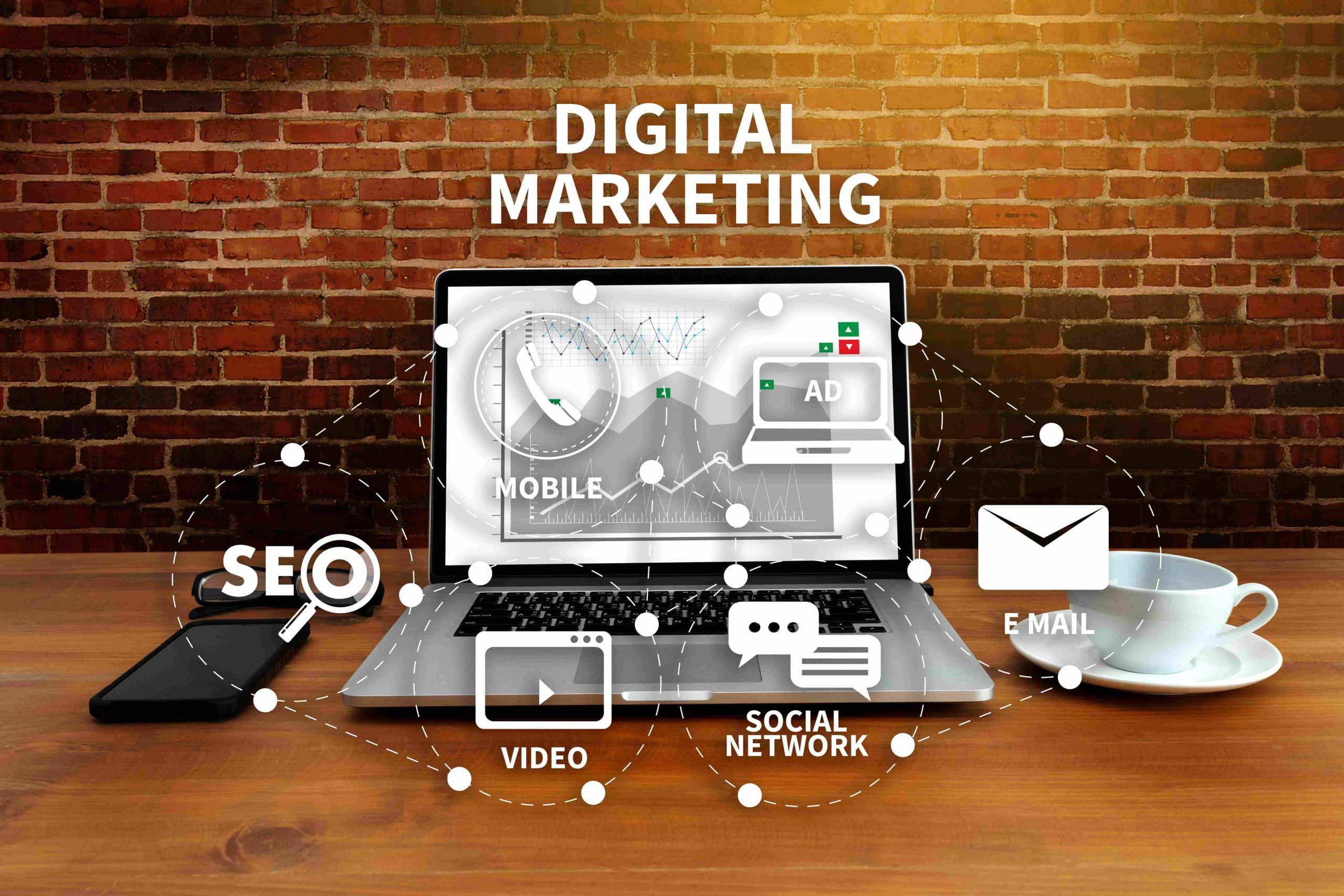Viral News | Explore around Viral and popular News this year
Unveiling The Ultimate Guide To Digital Marketing For Modern Businesses
Unveiling The Ultimate Guide To Digital Marketing For Modern Businesses: A Comprehensive Exploration
Editor's Notes: Unveiling The Ultimate Guide To Digital Marketing For Modern Businesses has published on [date]. Given the rapid evolution of the digital landscape, it's crucial for modern businesses to embrace effective digital marketing strategies to thrive in today's competitive market. This guide is a timely resource, offering valuable insights and guidance to help businesses navigate the complexities of digital marketing.
Through extensive analysis and research, this guide presents a comprehensive overview of digital marketing best practices, key trends, and emerging technologies. We've carefully crafted this guide to empower businesses with the knowledge and tools they need to make informed decisions and develop successful digital marketing campaigns.
Key Differences
| Traditional Marketing | Digital Marketing |
|---|---|
| One-way communication | Two-way communication |
| Limited reach | Global reach |
| High cost | Cost-effective |
Main Article Topics
- Understanding the Digital Marketing Landscape
- Setting Digital Marketing Goals and Objectives
- Content Marketing and SEO
- Social Media Marketing
- Email Marketing
- Paid Advertising (PPC)
- Analytics and Measurement
FAQ
This comprehensive guide addresses prevalent queries and misconceptions surrounding digital marketing in the modern business landscape.
Question 1: Is digital marketing only necessary for large corporations?
No. Digital marketing offers significant benefits to businesses of all sizes, including startups and small-scale ventures. Online platforms facilitate cost-efficient reach and targeted engagement, leveling the playing field for businesses irrespective of scale.
Question 2: Can we manage digital marketing in-house, or do we need to hire an agency?
The decision depends on factors such as team expertise, resource availability, and budget constraints. If your team possesses the necessary skills and bandwidth, managing digital marketing in-house may be feasible. However, if you lack the requisite expertise or resources, consider outsourcing to a specialized agency for professional guidance and execution.
Question 3: How often should our digital marketing strategy be revisited?
The digital landscape is constantly evolving, necessitating regular reviews of your marketing strategy. Conduct periodic assessments to ensure alignment with current trends, technological advancements, and market shifts. Adapting your approach proactively enables you to stay ahead of the curve and maximize results.
Question 4: What is the significance of data analytics in digital marketing?
Data analytics provides invaluable insights into campaign performance, customer behavior, and market trends. By analyzing data, you can identify strengths, weaknesses, and areas for improvement. Data-driven decision-making empowers you to optimize your strategies for enhanced effectiveness.
Question 5: Can we measure the ROI of digital marketing investments?
Yes, it is crucial to evaluate the return on investment (ROI) of your digital marketing efforts. By tracking key performance indicators (KPIs) and using analytics tools, you can assess the impact of campaigns and determine whether they generate a positive return.
Question 6: What are the potential risks associated with digital marketing?
While digital marketing offers substantial benefits, it also poses potential risks. These include data breaches, reputational damage, and legal complications. To mitigate these risks, implement robust security measures, maintain ethical practices, and comply with industry regulations.
Digital marketing is an indispensable element of modern business strategy. By understanding and addressing these common concerns, you can develop and execute a successful digital marketing plan that drives growth and competitiveness.

The Ultimate Guide to Digital Marketing | Nifty Marketing Australia - Source niftymarketing.com.au
Explore More:
Tips
Digital marketing is a multifaceted discipline that requires a holistic approach. Here are a few indispensable tips to guide you on your digital marketing journey:
Tip 1: Define and Understand Your Target Audience
Identifying and comprehending your target audience is paramount. Conduct thorough market research to gain insights into their demographics, interests, and behaviors. This knowledge will help you tailor your marketing messages and strategies to resonate with them effectively.
Tip 2: Leverage Content Marketing
Content marketing involves creating and distributing valuable, relevant, and consistent content to attract and retain a clearly defined audience. By providing informative and engaging content that addresses their needs, you can establish thought leadership, build relationships, and drive conversions.
Tip 3: Utilize Social Media Marketing
Social media platforms offer a powerful avenue to connect with your target audience, build brand awareness, and generate leads. Develop a comprehensive social media strategy that aligns with your marketing goals and engage with your followers through content sharing, community building, and targeted advertising.
Tip 4: Embrace Search Engine Optimization (SEO)
SEO involves optimizing your website and content to improve its visibility in search engine results pages (SERPs). By implementing best practices such as keyword research, on-page optimization, and link building, you can increase your organic traffic, enhance your brand's credibility, and drive qualified leads to your website.
Tip 5: Utilize Email Marketing
Email marketing remains a highly effective channel for nurturing relationships with your audience and promoting your products or services. Build a targeted email list, segment your audience, and create personalized email campaigns that provide value, engage your subscribers, and drive conversions.
Tip 6: Track and Measure Your Results
Regularly monitoring and measuring your digital marketing campaigns is crucial for optimizing your strategies and maximizing your return on investment (ROI). Use analytics tools to track key metrics such as website traffic, engagement, leads generated, and conversions. This data will help you identify areas for improvement and refine your approach.
Unveiling The Ultimate Guide To Digital Marketing For Modern Businesses
Digital marketing plays a paramount role in the success of modern businesses, and this guide unveils the essential aspects that businesses need to master to stay competitive.
- Strategic Planning: Aligning digital marketing efforts with overall business goals.
- Content Marketing: Creating and publishing valuable, relevant content to attract and engage customers.
- Search Engine Optimization (SEO): Optimizing websites and content for higher visibility in search results.
- Social Media Marketing: Using social media platforms to build relationships, increase brand awareness, and drive sales.
- Email Marketing: Leveraging email to nurture relationships, promote products, and drive conversions.
- Data Analytics: Tracking, measuring, and analyzing digital marketing data to optimize campaigns and improve ROI.

A Concept of Digital Marketing Stock Illustration - Illustration of - Source www.dreamstime.com
These key aspects encompass the essential dimensions of digital marketing for modern businesses. By effectively implementing these strategies, businesses can optimize their online presence, reach their target audience, and drive measurable results.
Unveiling The Ultimate Guide To Digital Marketing For Modern Businesses
In the contemporary business landscape, digital marketing has emerged as an indispensable tool for businesses of all sizes. The "Ultimate Guide to Digital Marketing for Modern Businesses" serves as a comprehensive resource, providing a roadmap to harness the full potential of this transformative medium. This guidebook encompasses a wealth of actionable insights, real-world examples, and cutting-edge strategies to empower businesses in effectively navigating the digital marketing landscape.

Digital Marketing Fundamentals - Ultimate Guide - Source www.seochad.com
Digital marketing, unlike traditional advertising, allows businesses to engage with their target audience in a more personalized and measurable manner. Through social media campaigns, email marketing, and search engine optimization, businesses can build stronger relationships with their customers, generate leads, and drive conversions. Moreover, the ability to track and analyze digital marketing campaigns provides businesses with valuable insights into customer behavior, enabling them to refine their strategies and maximize ROI.
The "Ultimate Guide to Digital Marketing for Modern Businesses" serves as a valuable resource for business owners, marketers, and entrepreneurs seeking to gain a competitive edge in the digital age. Its comprehensive coverage of essential topics, combined with its practical approach, makes it an invaluable tool for businesses looking to unlock the transformative power of digital marketing.
Key Insights from the Guide:
| Concept | Importance | Example | Practical Significance |
|---|---|---|---|
| Content Marketing | Builds brand authority, engages audience | Blogging, webinars, white papers | Strengthens customer relationships, drives lead generation |
| Search Engine Optimization (SEO) | Improves organic visibility, drives traffic | Keyword research, website optimization | Increases website traffic, generates qualified leads |
| Social Media Marketing | Builds brand awareness, fosters engagement | Social media posting, influencer campaigns | Expands reach, generates leads, improves customer service |